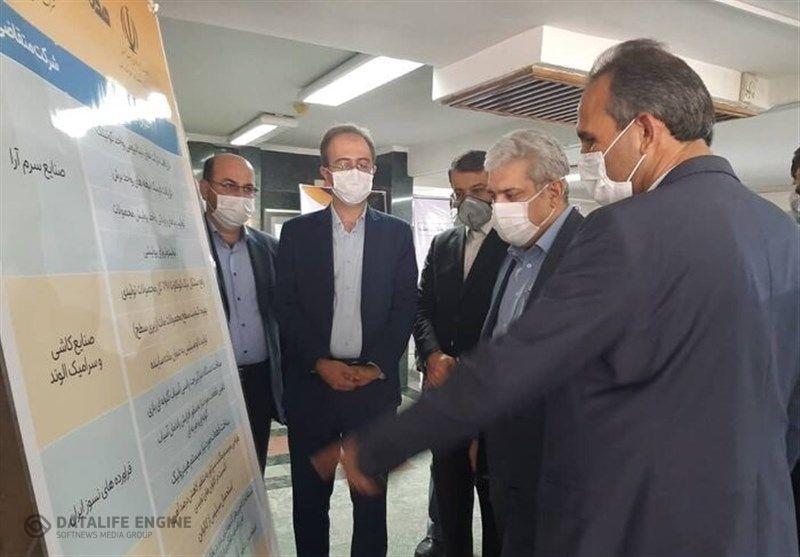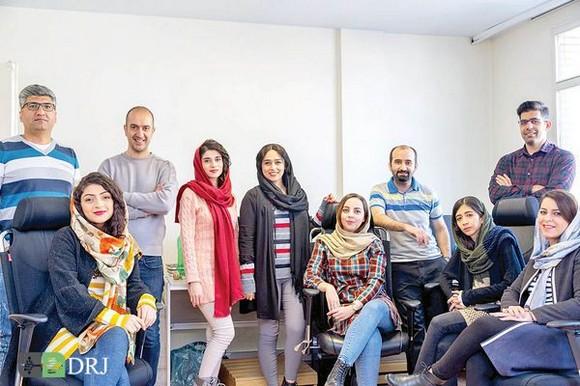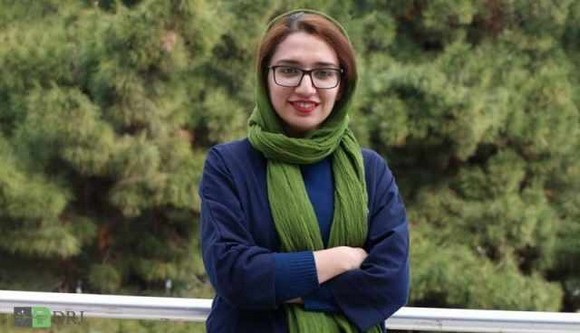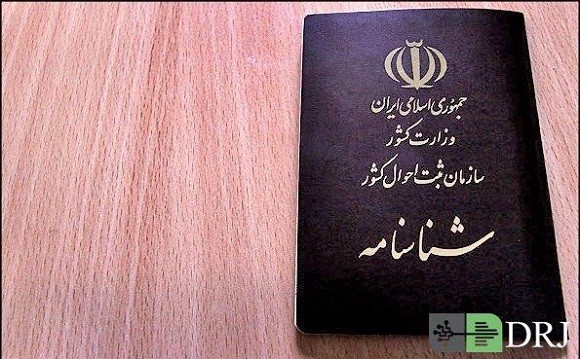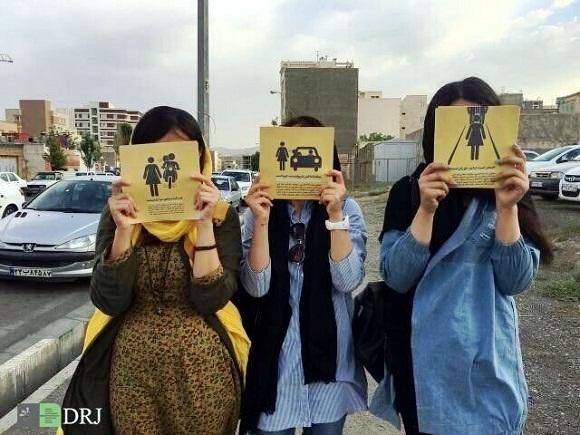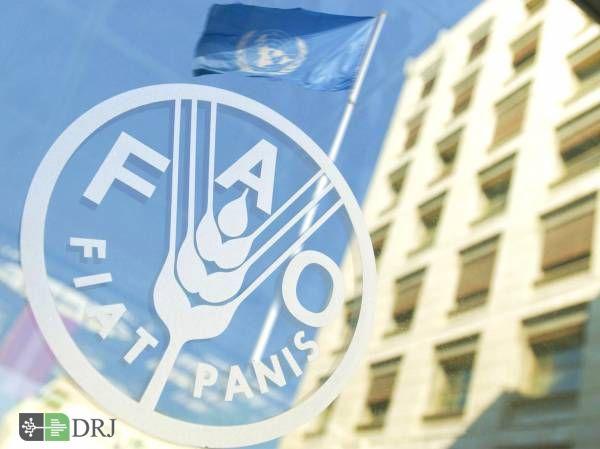Osman Bakar
Osman Bakar
Osman Bakar was born in a small village near the town of Temerloh in the east coast state of Pahang in Peninsular Malaysia ( 1946 ) . He received his high school education at the prestigious boarding school , Malay College Kuala Kangsar , dubbed since British rule as “Eaton of the East . ” Even at that early stage , Osman had a special interest in science and mathematics . After completing high school , he worked as a temporary teacher in Kuantan . In September 1967 he left Malaysia with a scholarship to study mathematics at Woolwich Polytechnic , London University . He graduated with a Bachelor’s degree in June 1970 . He then returned to Malaysia to become a tutor at Department of Mathematics in the newly founded National University of Malaysia , Kuala Lumpur . After a few months , Osman returned to London in September on a study leave under the University’s lecturer training scheme to pursue postgraduate studies in Algebra at Bedford College , London University . The following year , he obtained his Master of Science .
The same year , Osman started his doctoral study at the same College , specializing on algebraic group theory . He became intensely interested in religion and philosophy . He began to read more books on Islamic thought and both Western and Islamic philosophy , than on algebra . He was particularly attracted to the writings of two great Muslim thinkers , the contemporary Iranian scholar Seyyed Hossein Nasr , and the medieval Iranian scholar al-Ghazzali . He admits that the writings of both thinkers exerted a profound influence on his intellectual outlook and development . Al-Ghazzali’s Deliverance From Error contributed greatly to his Islamic perspectives on religion and science . Three of Nasr’s works , Introduction to Islamic Cosmological Doctrines , The Encounter of Man and Nature , and Science and Civilization in Islam , according to Osman , had the greatest impact on his philosophical thought . It was clear that he had already embraced many of Nasr’s intellectual perspectives on religion , philosophy and science . As a result of his new intellectual interests and several pressing circumstances , Osman terminated his doctoral study in mathematics to return home to National University of Malaysia in October 1973 to become a lecturer at the Department of Mathematics .
As a mathematics lecturer , Osman taught calculus and algebra . But because of his deep interest in religion and science , he was able to persuade the University’s academic administrators to allow him to teach two courses related to the subject . One was an undergraduate course on science in Islamic civilization , the other on religion and philosophy of science . Both courses , which he helped to design and teach since 1974 , were integral components of a group of courses on general studies that were made compulsory for all undergraduate students of the University . It was the first time that courses on religion , philosophy and science had ever been taught at Malaysia’s institutions of higher learning . When the neighboring University of Malaya introduced courses on history and philosophy of science within its “complementary science program” at the Faculty of Science in 1975 , Osman was invited to be a guest lecturer . Convinced of better prospects there he moved permanently to University of Malaya in 1977 to become the first full-time teaching staff of the complementary science program . For many years he became the coordinator of the program . Apart from teaching the histories of Greek , Indian , Chinese , Islamic and medieval Western sciences , Osman also introduced various courses in philosophy of science such as religion and science , .
In October 1981 , Osman went to Temple University , Philadelphia to pursue his doctoral studies in Islamic philosophy of science under the supervision of Nasr . He wrote a thesis entitled Classification of the Sciences in Islamic Intellectual History: A Study in Islamic Philosophies of Science that has been published under the title Classification of Knowledge in Islam . The Malaysian edition was first published in 1992 , and the United Kingdom edition in 1997 . The book has been translated into Indonesian language and Persian . After obtaining his PhD , Osman was promoted to Associate Professor in 1989 and Professor in 1992 as Chair of Philosophy of Science , a post that he still holds . From July until December 1992 , he was a Fulbright Visiting Scholar at Department of History of Science , Harvard University where he undertook research on Mathematics in Muslim Culture . In 1995 , he was appointed the University of Malaya’s Deputy Vice Chancellor in charge of academic and human resource matters . He resigned from the post in June 2000 to take up a new appointment at Georgetown University , Washington DC as Malaysia Chair of Islam in Southeast Asia .
During the last 25 years , Osman has made a major contribution to the popularization of Islamic science and intellectual discourses on religion and science , and to the advancement of cross-cultural studies of history and philosophy of science . His intellectual contribution has had an impact , not only in his own country , Malaysia , but also in various parts of the Muslim world . He is the main founder of Malaysian Islamic Academy of Science established in 1977 . He was its first Secretary-General ( 1977-1981 ) and later President ( 1987-1992 ) . Among the objectives of the Academy is to promote studies and research in religion and science , particularly from the Islamic point of view . In 1991 , he founded the Academy’s bilingual biannual journal Kesturi , a publication dedicated to the pursuit of the unity of knowledge . He was the journal’s first Chief Editor .
Osman’s first academic paper was The Problem of Malay-Muslim Progress in Science , written in 1974 but presented in 1975 at the First Islamic World Conference in Science and Technology held in Riyadh , Saudi Arabia . The paper dealt with certain issues in religion and science , and proposed that the problem of Malay-Muslim backwardness in science education should be resolved within the Islamic intellectual and cultural framework . It was published in the Proceedings of the Conference . In the subsequent period until his departure for his doctoral study in the United States , all of Osman’s works were written in Malay . The majority of these works deal with the subject of Islam and science , covering such issues as the meaning and significance of Islamic science ( 1976 ) , Islamic conceptions of science ( 1978 ) , the relationship between science and spiritual values ( 1979 ) , and the fundamental differences between traditional Islamic science and modern science ( 1978 ) . One significant work belonging to this period was written as a discussant of the paper Islam’s Contributions to World Culture ( in Malay ) presented by the famous Indonesian philosopher , Sutan Ali Takdir Alisjahbana , at an International Seminar on Islam and Malay Culture , held at the National University’s temporary campus in Kuala Lumpur . All seminar papers , including Osman’s critique of Alisjahbana were published as a book by the Ministry of Culture , Youth and Sports ( 1977 ) .
It was Osman’s Conception of Science in Islam ( in Malay ) that had a considerable impact on Muslims in Malaysia , especially among students . It was presented in 1978 as the main paper in the first national seminar ( organized by Islamic Academy of Science ) ever to be held on Islam and science . The work was published soon afterwards in Risalah ( 1978 ) , a newsletter of the influential Muslim Youth Movement of Malaysia ( ABIM ) . It was widely distributed and read by Malay students , including those studying abroad . The Australian Federation of Malaysian Students’ Association published it in its Majalah AFMSA ( 1978 ) . In this work , Osman proposed that science as conceived and cultivated in Islamic civilization exhibits characteristics that differ significantly from those of modern science . One major difference between Islamic science and modern science is in their methodological approaches to the study of nature .
The next phase of Osman’s academic life , beginning with his PhD studies at Temple University , saw a tremendous increase in his intellectual output . A total of ten books , six in English and four in Malay were published . More than seventy papers , mostly in English , appeared in journals and magazines , including papers that he had written when he was a PhD student . These books and articles dealt with a wide range of subjects in religion , philosophy and science . His discourse on Islam and science covered such topics as metaphysical and cosmological foundations of science , methodology , evolution , bioethics , philosophy of medicine , natural theology , and cognitive psychology . Osman claims that the philosophical perspectives on Islam and science that he acquired during his mathematics postgraduate studies in London have not undergone any fundamental development or change , but have basically remained the same until now . His claim seems to be confirmed by the similarity and the continuity of thought in the philosophical contents of his pre-doctoral and post-doctoral studies .
Many of Osman’s works on Islam and science are widely read in various parts of the Muslim world , especially in Indonesia and the Indian sub-continent . His most popular book is Tawhid and Science ( 1991 ) , which has been translated into Indonesian Language and Albanian . Chapters of the book have been translated into the major languages of the Muslim world , including Arabic , Persian , Turkish and Urdu . It enjoys the distinction of being the most reviewed of all his books . In a sense , Tawhid and Science depicts the depth and breadth of Osman’s intellectual concerns with issues in Islam and science . What it calls ‘Islamic science’ is none other than that science which embraces the totality of the mathematical and natural sciences , including psychology and cognitive science , which have been cultivated in Islamic culture and civilization for more than a millennium , beginning in the third century of the Islamic era ( the ninth century of the Christian era ) . Those sciences can very appropriately be called Islamic science , because , conceptually speaking , they are organically related to the fundamental teachings of Islam , the most important of which is the principle of tawhid . The science of tawhid is theology in the real sense of the word . Another of his popular books , an edited work , is Critique of Evolutionary Theory ( 1987 ) .
In Tawhid and Science and several other writings , Osman maintains that Islamic science shares with modern science the rational nature of its language , the adoption of scientific and experimental methods of inquiry , and the international character of its scientific practices , organizations and institutions . This is understandable since historically speaking , modern science is the immediate successor of Islamic science . In many of its disciplinary characteristics , modern science owes a lot to Islamic science . But in many other characteristics , it marks a clear departure from its predecessor . There are many important differences in the philosophical principles on which the two sciences are founded . The metaphysical and cosmological foundations of Islamic science have either been rejected or neglected by modern science . Even at the level of epistemological , ethical and moral principles , major differences are discernible between the two sciences . Consequently , these sciences have come to adopt theoretical and practical goals and methodological principles that are different in several respects .
Osman’s interest in religion and science is not confined to Islamic viewpoints . It covers the viewpoints of the world’s major religions . As a postgraduate student at Temple University’s Department of Religion , then probably the world’s best department of its kind , Osman was well exposed to the study of world religions under distinguished professors of religion . At the University of Malaya , he has taught third-year science students courses on religion and science from the perspectives of the world’s major religions , which happen to exist also in Malaysia . He is particularly interested in exploring the encounter of religion and science on such issues as cosmic design , meaning of intelligence both terrestrial and extra-terrestrial , cognitive psychology , evolution , quantum physics and consciousness , bioethics , and genetics . This year ( 2001 ) , he has been appointed a member of the Religion Working Group on Genetically Modified Food at University of Pennsylvania’s Center for Bioethics .
Selected Bibliography
Books
The History and Philosophy of Islamic Science . Islamic Texts Society , Cambridge ( UK ) 1999; 1991 edition published by Secretariat for Islamic Philosophy and Science , Science University of Penang and Nurin Enterprise , Kuala Lumpur under the title Tawhid and Science .
Classification of Knowledge in Islam . Islamic Texts Society , Cambridge ( UK ) 1998; 1992 edition published by Institute for Policy Studies , Kuala Lumpur .
( ed . ) . Science , Technology , and Art in Human Civilizations . University of Malaya Press , Kuala Lumpur , 1992 . ( in Malay )
( ed . ) . Islam and Contemporary Scientific Thought . Islamic Academy of Science , Kuala Lumpur , 1989 . ( in Malay )
( ed . ) . Critique of Evolutionary Theory: A Collection of Essays . Islamic Academy of Science and Nurin Enterprise , Kuala Lumpur , 1987 .
In encyclopedias
“Cosmology” in John L . Esposito ( ed . ) , Oxford Encyclopedia of the Modern Islamic World , vol . 1( 1995 ) , pp . 322-328 .
“Abortion: Islamic Perspectives” in Warren Thomas Reich ( ed . ) , Encyclopedia of Bioethics , rev . edition , vol . 1( 1995 ) , pp . 38-42 .
Chapters of books ( selected )
1997 . “The Importance of Cosmology in the Cultivation of the Arts , ” in Wan Abdul Kadir & Hashim Awang ( eds . ) , Art and Cosmology: Islamic Cosmology and Malay Art , Academy of Malay Studies , Kuala Lumpur , pp . 1-6 .
1996 . “Science ( as a Branch of Philosophy )” in S . H . Nasr & O . Leaman ( eds . ) , History of Islamic Philosophy , Routledge History of World Philosophies , vol . II , chapter 53 , pp . 926-958 .
1994 . “Knowledge of Divine Unity ( tawhid ) on the Basis of Scientific Knowledge , ” Ismail Ibrahim & Mohd Sahri Abdul Rahman ( eds . ) , Knowledge and Excellence in Islamic Perspective , Institute of Islamic Understanding ( IKIM ) , Kuala Lumpur , pp . 1-9 .
1993 . “Science in Islamic Perspective , ” in Azizan Baharuddin ( ed . ) , Malay Students and Science Education , Academy of Malay Studies Monograph ( Cendekia ) , University of Malaya , Kuala Lumpur , no . 2 , pp . 8-24 . ( in Malay )
1991 . “The Unity of Science and Spiritual Knowledge: The Islamic Experience , ” in R . Ravindra ( ed . ) , Science and Spirit , International Cultural Foundation , New York , pp . 87-101 .
1991 . “Spiritual Traditions and Science and Technology , ” in ALIRAN , The Human Being: Perspectives from Different Spiritual Traditions , ALIRAN , Kuala Lumpur , pp . 140-155 .
1984 . “The Question of Methodology in Islamic Science , ” in Rais Ahmad & S . Naseem Ahmad ( eds . ) , Quest for New Science: Selected Papers of a Seminar , Center for Studies on Science , Aligarh ( India ) , pp . 91-109 .
1979 . “The Role of Science Education in the Spiritual Development of Man , ” in PKPIM Collection: Symposium on Islamic Education , National Union of Muslim Students of Malaysia ( PKPIM ) , Kuala Lumpur , pp . 119-135 .
In journals ( selected )
1996 . “Truth and Wisdom in a Holistic Concept of Knowledge , ” Pemikir , no . 3 , Jan-March 1996 , pp . 100-112 . ( in Malay )
1994 . “The Common Philosophical Foundation of Traditional Medicines , ” Sophia , Winter 1994 , no . 6 , pp . 1-4 .
1993 . “Symbol and Archetype: A Study of the Meaning of Existence: A Review Article , ” Studies in Tradition , 2:1( Jan-March 1993 ) , pp . 62-78 .
1991 . “Atomistic Conception of Nature in Ash’arite Theology , ” Iqbal Review , 32:3 ( October 1991 ) , pp . 19-44 .
1990 . “The Philosophy of Islamic Medicine and Its Relevance to the Modern World , ” MAAS Journal of Islamic Science , 6:1 ( Jan-June 1990 ) , pp . 39-58 .
1990 . “Designing a Sound Syllabus for Courses on Philosophy of Applied and Engineering Sciences in a 21st Century Islamic University , ” Muslim Education Quarterly , 7:3 ( Spring 1990 ) , pp . 19-25 .
1988 . “The Influence of Islamic Science on Medieval Christian Conceptions of Nature , ” MAAS Journal of Islamic Science , 4:1 ( Jan-June 1988 ) , pp . 25-43 .
1986 . “Islam and Bioethics , ” Greek Orthodox Theological Review , 3:2 ( 1986 ) , pp . 157-179 .
1986 . “The Meaning and Significance of Doubt in al-Ghazzali’s Philosophy , ” The Islamic Quarterly , 30:1 ( 1986 ) , pp . 20-31 .
1985 . “Umar Khayyam’s Criticism of Euclid’s Theory of Parallels , ” MAAS Journal of Islamic Science , 1:2 ( July 1985 ) , pp . 9-18 .
1984 . “The Question of Methodology in Islamic Science , ” Muslim Education Quarterly , 2:1 ( Autumn 1984 ) , pp . 16-30 .
1984 . “Ibn Sina’s Methodological Approach Toward the Study of Nature in His Oriental Philosophy , ” Hamdard Islamicus , vol . VII , no . 2 ( Summer 1984 ) , pp . 33-49 .


